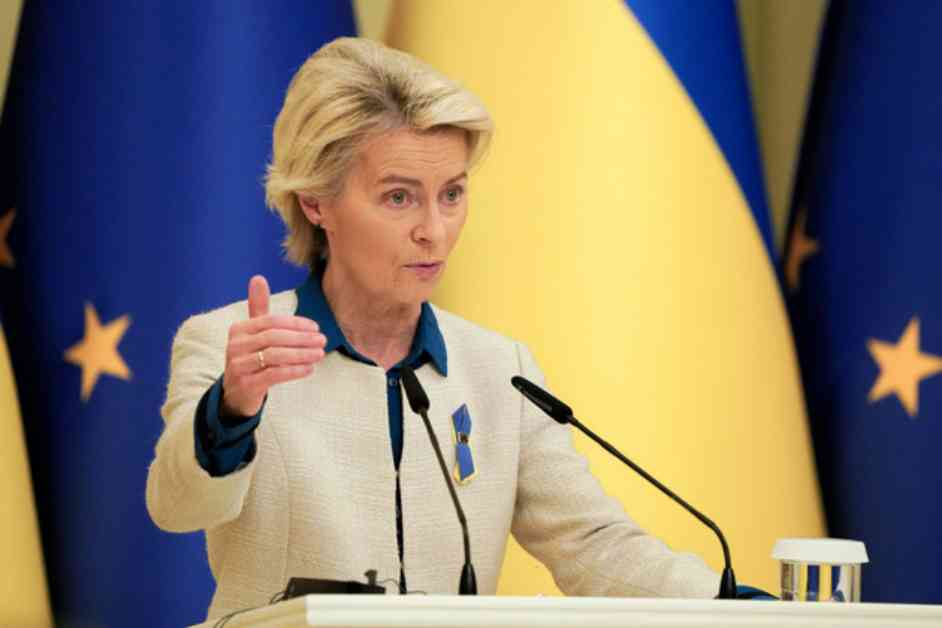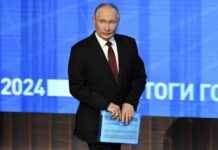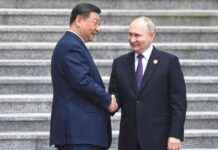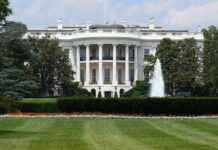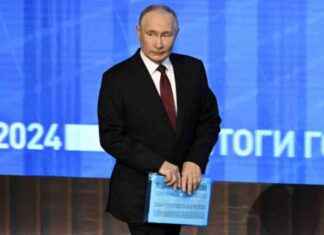The European Commission is gearing up to prioritize its support for Ukraine in its upcoming work program for 2025, as revealed in a near-final draft obtained by Euractiv. Despite the leaked draft last week offering a glimpse into the legislative agenda, the latest version maintains the Commission’s unwavering commitment to Ukraine amidst a broader focus on global competitiveness and regulatory streamlining.
Amidst the bureaucratic jargon and policy proposals, one clear message shines through in the document: Ukraine holds a special place in the Commission’s agenda. Described as the “foremost priority,” the support for Ukraine is framed as a steadfast commitment to standing against Russia’s aggression and championing Ukraine’s freedom. The text further emphasizes the Commission’s backing of Ukraine’s potential future EU membership, underscoring a long-term vision of partnership and solidarity.
Enhancing Europe’s competitiveness emerges as another key pillar of the Commission’s strategy for 2025. The draft highlights the introduction of “Omnibus packages” aimed at reducing regulatory burdens across various sectors. These packages are poised to streamline sustainability reporting and redefine the concept of “mid-cap” companies, easing reporting obligations for businesses. With the first package slated for release soon, the Commission is poised to usher in a wave of regulatory reforms to bolster Europe’s economic landscape.
Moreover, the draft program outlines plans to revamp the EU’s budget framework to align more closely with the bloc’s priorities and streamline funding allocation. A particular focus is placed on the Common Agricultural Policy (CAP), a significant component of the EU budget, with an aim to simplify budgetary processes and enhance effectiveness. By ensuring that EU funds are directed towards critical areas in a flexible manner, the Commission seeks to maximize the impact of its financial resources.
In a significant development in migration policy, the Commission is set to unveil the first-ever five-year European Migration and Asylum Strategy, heralding a proactive approach to address migration challenges. This strategy is designed to build upon existing national policies, providing a comprehensive framework for managing migration flows and asylum processes across the EU.
Commission President Ursula von der Leyen is poised to present the 2025 program to Members of the European Parliament, marking a crucial moment in the Commission’s engagement with EU lawmakers. Originally scheduled for the European Parliament plenary session in Strasbourg, the presentation promises to offer insights into the Commission’s vision for the future of the EU and its strategic priorities for the coming years.
As these developments unfold, the European Commission’s proactive stance on Ukraine and broader policy objectives underscores the complex interplay between geopolitical dynamics, economic imperatives, and regulatory reforms within the EU. By placing Ukraine at the forefront of its agenda and charting a course towards enhanced competitiveness and streamlined governance, the Commission is poised to navigate a challenging landscape while upholding its commitment to a stronger, more resilient Europe.
Expert Insights: Navigating the Path Ahead
To shed light on the implications of the Commission’s 2025 program, we turn to Dr. Maria Schmidt, a prominent political analyst specializing in EU affairs. Dr. Schmidt emphasizes the strategic significance of the Commission’s unwavering support for Ukraine, noting that it not only reflects a commitment to upholding European values but also serves as a crucial geopolitical signal in the face of ongoing tensions with Russia. “By prioritizing Ukraine and emphasizing competitiveness, the Commission is sending a clear message about its vision for a more robust and cohesive Europe,” Dr. Schmidt observes.
Looking Ahead: Challenges and Opportunities
As the Commission prepares to unveil its 2025 program, the road ahead is fraught with challenges and opportunities. Balancing the need for economic revitalization, regulatory efficiency, and geopolitical stability will require deft navigation and strategic foresight. By anchoring its agenda in tangible priorities such as Ukraine’s support, competitiveness enhancement, and budget reform, the Commission sets the stage for a dynamic period of policy evolution and institutional transformation. As Europe charts its course in a rapidly changing global landscape, the Commission’s 2025 program stands as a testament to its resilience, adaptability, and commitment to a stronger, more united future.
Euractiv, a prominent European news website dedicated to EU policies, serves as a vital source of information and analysis on key developments within the European Union. Founded in 1999 by Christophe Leclercq, a seasoned media publisher, Euractiv has established itself as a leading voice in EU affairs, offering in-depth coverage, insightful commentary, and expert perspectives on the pressing issues shaping the European political landscape. With its headquarters in Brussels and additional offices in Paris and Berlin, Euractiv remains at the forefront of EU policy discourse, providing a platform for informed dialogue and critical engagement on matters of regional and global importance.
